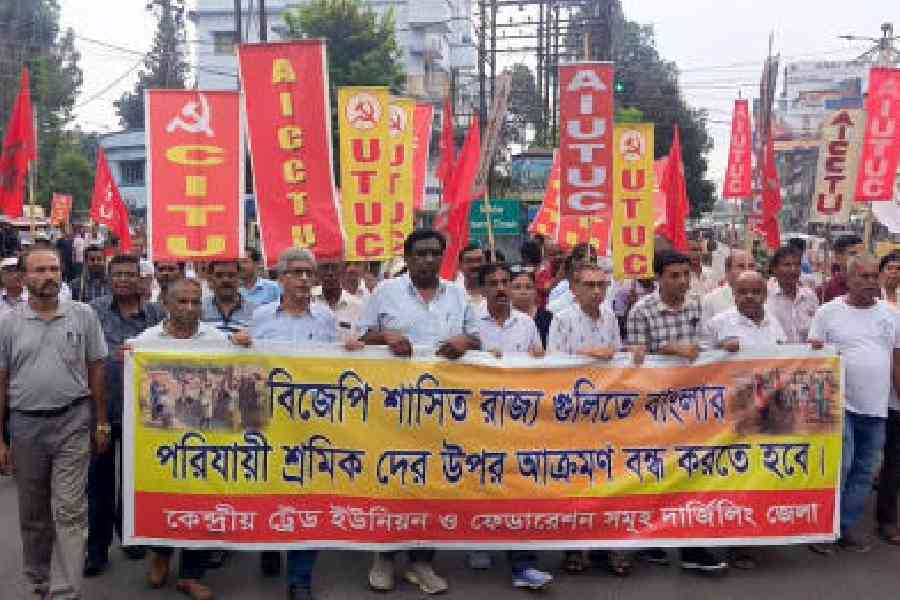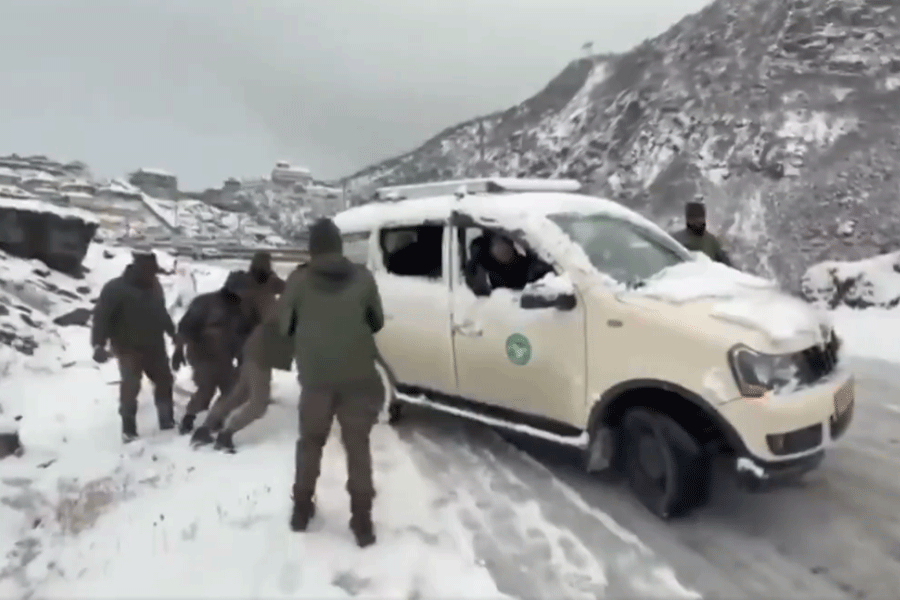Chief minister Mamata Banerjee on Tuesday said she would lead marches against atrocities on Bengali-speaking people in other states during her upcoming trips to districts.
“Wherever I go, I will join a march to condemn bhasha-santrash (violence against language). If everything goes as planned, I will visit Birbhum on July 27 and 28. I will also hold such a march in Birbhum during my visit, besides holding meetings and inaugurating bridges,” she told a news conference at the state secretariat, Nabanna.
A source in Birbhum Trinamool Congress said the party had not yet been informed about the time and place of the chief minister’s protest march, but it was likely to be held in Bolpur on July 28.
Besides launching her protest march over the anti-Bengali issue, Mamata’s trip to Birbhum holds special significance because of the Deocha-Pachami coal mine project. A source said Mamata was likely to visit the project area, where around 1,000 large trees had been relocated and excavation work for basalt mining was progressing successfully.
“However, the final schedule of her visit to Deocha is yet to be confirmed by her office,” said an official.
Multiple sources in Trinamool said that after deploying her party’s rank and file to the streets on the anti-Bengali issue against the BJP, Mamata planned to launch her political campaign from Birbhum on the same issue — one that the party is heavily relying on — ahead of next year’s Assembly polls.
During her July 21 address, Mamata instructed Trinamool workers to organise small programmes and protest marches in their respective blocks across the state on weekends, mobilising the party’s grassroots against the BJP on the Bengal and Bengali
identity issue.
A source said that beginning with Birbhum, Mamata planned to visit all districts before Durga Puja to hold administrative and political meetings.
“In addition to the regular programmes, she has now added another political event to her itinerary — raising awareness among people about how Bengalis are being harassed for speaking their language. She doesn’t want to leave even an inch of political space to the BJP on this issue,” said a senior Trinamool leader in Calcutta.
The leader pointed out how Trinamool had raised the “outsider” issue against the BJP during the 2021 Assembly poll campaign. A section of Trinamool leaders believes the anti-Bengali issue could have an even greater impact on the elections, given that hundreds of migrant workers from Bengal had reportedly been tortured in BJP-ruled states. Additionally, at least seven people had allegedly been deported to Bangladesh but were later brought back following pressure from the state government.
“The anti-Bengali narrative that the party raised in 2021 continued through the 2024 general election, particularly over the withholding of funds for Bengal by the Narendra Modi government. The issue helped politically corner the BJP in the Lok Sabha polls, reducing the party’s tally to 12 seats — six fewer than in 2019,” said a Trinamool source.
Trinamool has also taken the anti-Bengali issue to Delhi, instructing all MPs to speak in Bengali in both Houses of Parliament, following a directive from the party’s national general secretary, Abhishek Banerjee.
BJP state president Samik Bhattacharya claimed that all states were conducting drives to detect and deport infiltrators.
“There may have been one or two instances; otherwise, there are no allegations of torture, as all states in the country have taken the policy of detecting and deporting infiltrators and Rohingya people,” said Bhattacharya.










